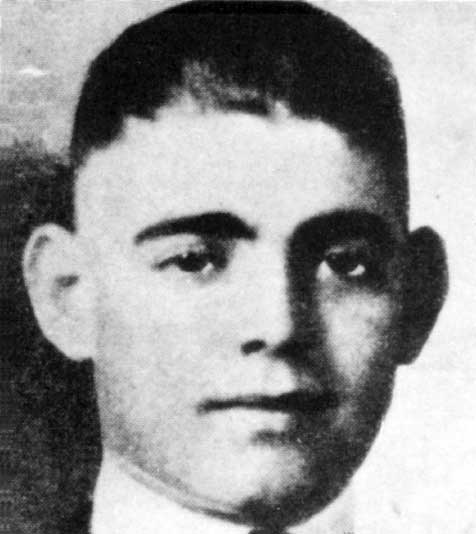vitanola
I'll Lock Up
- Messages
- 4,254
- Location
- Gopher Prairie, MI
Goes without saying.Anyone else recognize Paul Whiteman the King of Jazz?
Music hath charms, you know.
Goes without saying.Anyone else recognize Paul Whiteman the King of Jazz?
Richard Barthelmess was an actor of the first rank. "He was in some really good movies" That is certainly an understatement!"Rich Man, Poor Man", "Tol'able David", "Broken Blossoms", "Way Down East", and then in the modern era stuff
ike "Scarlet Seas". How could he be forgotten?
 John Lofgren Monkey Boots Shinki Horsebuttt - $1,136 The classic monkey boot silhouette in an incredibly rich Shinki russet horse leather.
John Lofgren Monkey Boots Shinki Horsebuttt - $1,136 The classic monkey boot silhouette in an incredibly rich Shinki russet horse leather.  Grant Stone Diesel Boot Dark Olive Chromexcel - $395 Goodyear welted, Horween Chromexcel, classic good looks.
Grant Stone Diesel Boot Dark Olive Chromexcel - $395 Goodyear welted, Horween Chromexcel, classic good looks.  Schott 568 Vandals Jacket - $1,250 The classic Perfecto motorcycle jacket, in a very special limited-edition Schott double rider style.
Schott 568 Vandals Jacket - $1,250 The classic Perfecto motorcycle jacket, in a very special limited-edition Schott double rider style. Barthelmess was one of those actors who got swallowed up by the coming of talkies -- not because he wasn't able to adjust personally, he had a fine voice and was plenty capable as an actor, but because he'd been around a while, was making a lot of money, and the studios saw the transition as a chance to bring in and push a lot of new more cost-efficient performers instead. Warner Brothers, where Barthelmess was working during the talkie transition, churned away pretty much its entire roster of stars between 1929 and 1932, replacing them with the actors now most identified as "Warner Bros. stars:" Cagney, Muni, O'Brien, Davis, Blondell, Powell, etc.
It's absolutely fascinating to watch a picture called "The Show of Shows," an "all-star all-talkie revue" made by Warners in 1929 to showcase its then-current roster of talent. Every prominent Warner actor of the moment, with the exception of Jolson, appears in the film -- and only one of these performers, Loretta Young, was still on the Warner roster in 1932.
I think a big part of it was money. Pretty much everything that happened in Hollywood in the Era had to do with either money or studio politics -- some studios used the talkie turnover both as a chance to cut the budget and as a chance to get rid of performers who had fallen in bad with the management for one reason or another. There's a lot of talk, for example, that John Gilbert got the shaft at Metro because he'd fallen into L. B. Mayer's doghouse, and that it wasn't just booze that did in Buster Keaton -- he was considered a studio troublemaker who needed to be put in his place.
There's also the fact that a lot of the silent era stars were by 1930, believed to be aging past the point of being marketable. There was talk about that with Barthelmess, to the point where he actually had some plastic surgery done, which turned out to be a botch, and that was pretty much the end of him as a top rank star. It was even worse with women -- Mae Murray had been a big deal in the twenties, but by the thirties she was getting thick in the middle, and the studios decided nobody wanted to look at her anymore.

Barthtelmess was one of the first actors to go in for a "face lift," in the mid-thirties, but the incisions became infected and he was left with deep, noticeable scars on his face. If you've seen "Only Angels Have Wings," the scars are very obvious -- the director insisted he not cover them with makeup because they added an interesting character touch.
A few other actors of the time had "work done," but not as drastic as Barthelmess's botched face job. Clark Gable had his ears pinned back and had extensive cosmetic dentistry performed before he was ready for full public consumption. Before, he was, well, pretty much a gargoyle.

...Clark Gable had his ears pinned back and had extensive cosmetic dentistry performed before he was ready for full public consumption. Before, he was, well, pretty much a gargoyle.


Anyone else recognize Paul Whiteman the King of Jazz?